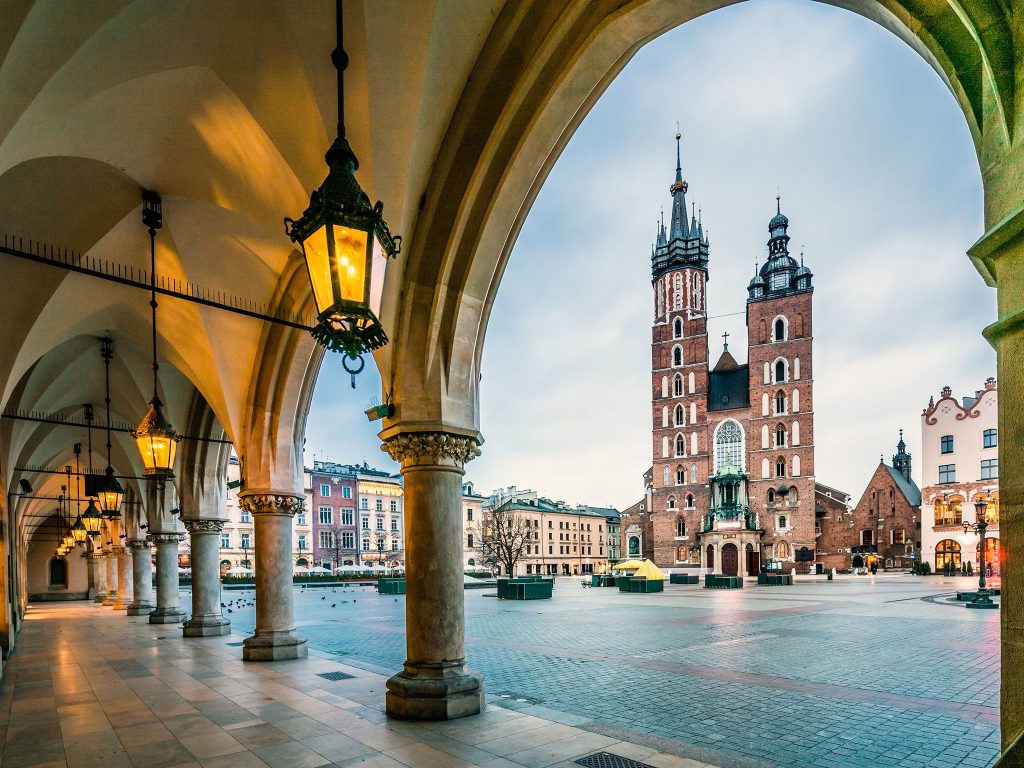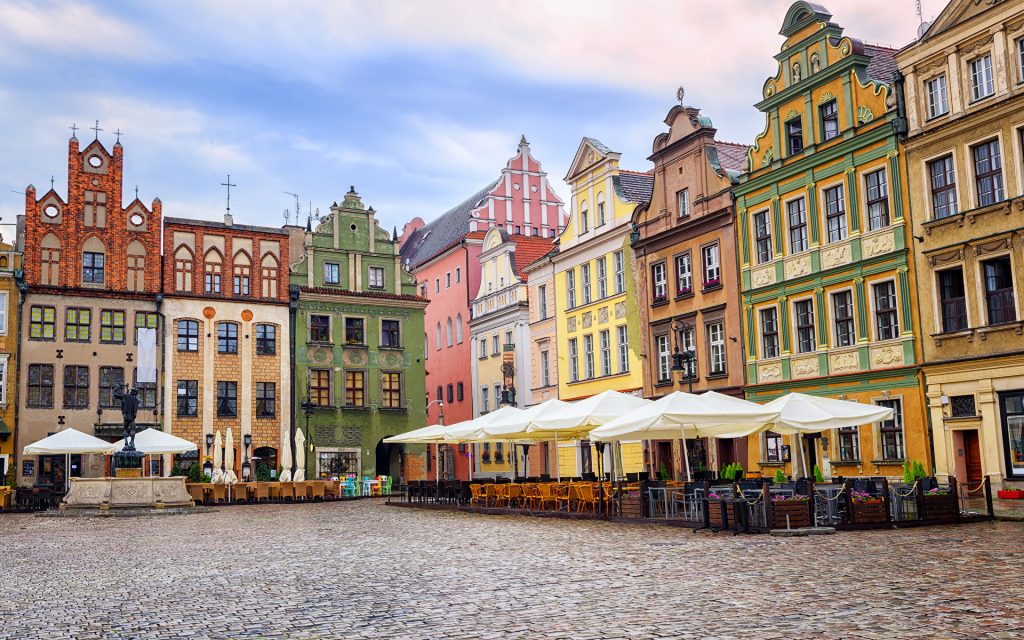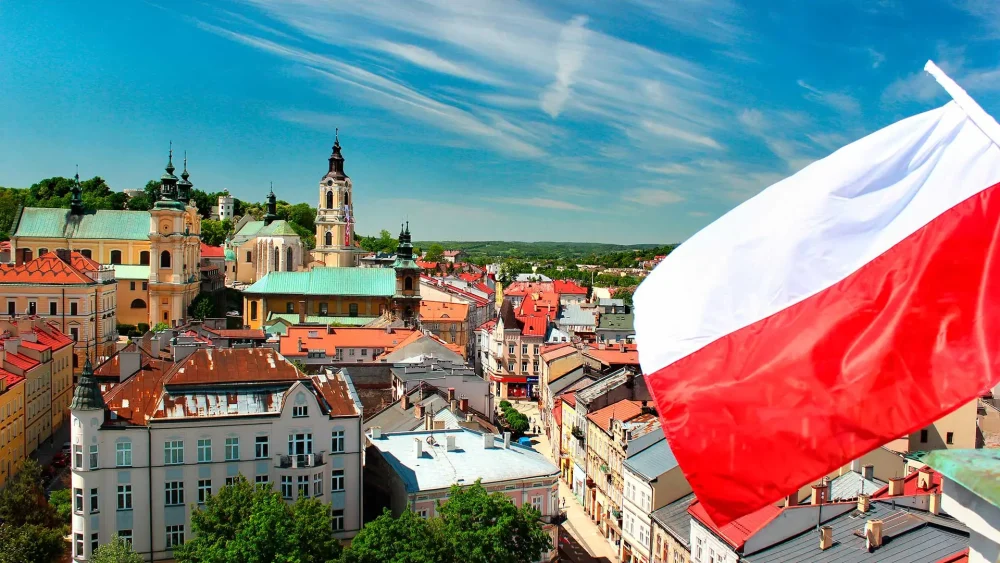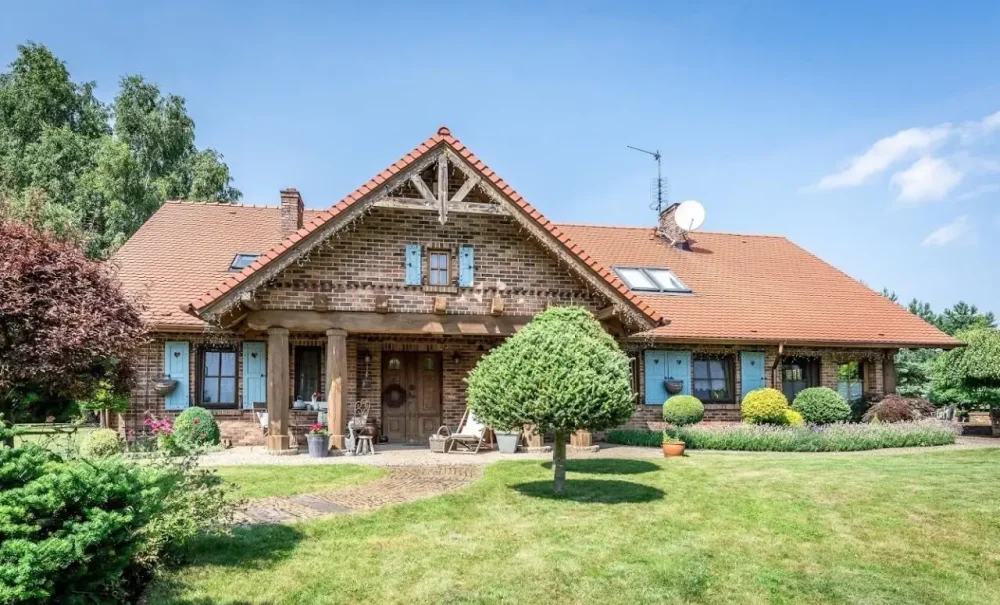Poland remains one of the most attractive countries to move to due to its developed economy, low unemployment rate, affordable housing prices and well-designed infrastructure. The country offers excellent conditions for work, business, education, as well as immigration programmes that make it easier to obtain permanent residence.
Choosing the best city in Poland to live in depends on many factors: salary level, property prices, ecology, infrastructure and climate conditions.
Warsaw: a dynamic metropolis
Warsaw ranks first among the top Polish cities thanks to its developed economy, large number of jobs and comfortable infrastructure. It is the financial and technological centre of the country, offering high salaries and fast career growth.
The average income in the capital is significantly higher than in other Polish cities. Specialists in IT, finance, marketing and construction can earn between 8,000 and 15,000 PLN per month. The city offers many vacancies for expats and professionals in international companies, making a move to Poland particularly favourable for skilled personnel.
Cost of property and standard of living in Warsaw
Housing in the capital is more expensive than in other regions, but still more affordable than in Western Europe. The average cost of a flat in the centre is 15000-18000 PLN per square metre, rent from 3000 PLN for a “one-bedroom”. Despite the high pace of life, Warsaw remains a comfortable city with developed infrastructure, good ecology and the best medical care in Poland.
Krakow: cultural centre
 Krakow holds an honourable place in the ranking of Poland’s best cities to live in thanks to its original architecture, high level of education and strong tourist industry. In a metropolis with a rich history and a dynamic economy, it is easy to find work and enjoy a comfortable living.
Krakow holds an honourable place in the ranking of Poland’s best cities to live in thanks to its original architecture, high level of education and strong tourist industry. In a metropolis with a rich history and a dynamic economy, it is easy to find work and enjoy a comfortable living.
Why does Krakow attract expats and students?
One of the best educational institutions in the country, the Jagiellonian University, is located here. International companies operate in the city, which creates employment opportunities in IT, finance and marketing. The average income of professionals in Krakow is 7000-12000 PLN per month.

Housing prices
Krakow offers affordable property prices. A square metre in the centre costs 12000-15000 PLN, renting a flat from 2500 PLN per month. The city is suitable for students, young professionals and families who want to live in the cultural capital of Poland with a high level of comfort.
Gdansk: a corner by the sea
Gdansk occupies a special place among the best cities in Poland to live in, offering a comfortable atmosphere, economic stability and high quality infrastructure. It is the country’s key port hub, playing an important role in international trade, shipbuilding and logistics. In addition, Gdansk attracts tourists, IT professionals, entrepreneurs and family people, creating optimal conditions for moving to Poland for permanent residence.
Advantages of living in Gdańsk
Gdansk has a moderate climate, a large number of green areas and a convenient transport system. Families, pensioners and those who appreciate sea air and ecology can live here comfortably. The average salary in the city is 6000-11000 PLN per month, and the cost of housing is lower than in Warsaw and Krakow.
Jobs: prospects and salary levels
Gdansk remains one of Poland’s leading economic centres, offering a wide range of career opportunities in shipbuilding, logistics, IT, tourism and trade. It is home to major international companies, industrial parks and a growing start-up industry. The location is attractive for IT professionals and entrepreneurs.
Average salaries:
- IT specialists: 9000-15000 PLN per month.
- Logistics and transport: 6000-10000 PLN.
- Tourism and hospitality: 5000-8000 PLN.
- Shipbuilding and industry: 7000-12000 PLN.
Due to low competition among specialists in certain fields, moving to Gdansk can be a good solution for professional growth and stable employment.
Real estate: how much does housing cost?
Gdańsk offers affordable property prices compared to Warsaw and Krakow, making it a favourable city for long-term residence. For example:

- Flats in the centre: 10000-14000 PLN per square metre.
- Housing in dormitory areas: 8000-10000 PLN.
- Renting a flat (1-bedroom): 2000-3000 PLN per month.
- Rent a flat (2-3 rooms): 3500-5000 PLN.
The cost of the property depends on the neighbourhood, proximity to the sea and the level of infrastructure. However, long-term rentals are more affordable than in other metropolitan areas of Poland.
Poznan: developed economy and convenient infrastructure
Poznan is one of the best cities in Poland to live in thanks to its developed industry, comfortable infrastructure and low housing costs. The country’s key business centre attracts programmers, engineers and entrepreneurs. Large industrial enterprises and IT companies are located here, which creates good conditions for career and business. The average salary in Poznan is 6500-11000 PLN per month, and the level of competition on the labour market is lower than in Warsaw or Krakow.
Cost of property in Poznan
Housing prices remain among the most affordable among major cities in Poland. The average cost of a square metre is 8500-11000 PLN, renting a flat from 1800 PLN per month. The location is suitable for technology professionals, engineers and those looking for a comfortable and inexpensive city to live in.
Conclusion
 Choosing the best city in Poland to live in depends on your goals. Warsaw is suitable for career development and business, Krakow for those who value cultural environment and education. Gdansk attracts with its comfortable stay by the sea, while Poznan offers prospects in industry and the IT sector. For those looking for a peaceful atmosphere, affordable property and developed infrastructure, Bielsko-Biała, Bydgoszcz and Katowice are good choices.
Choosing the best city in Poland to live in depends on your goals. Warsaw is suitable for career development and business, Krakow for those who value cultural environment and education. Gdansk attracts with its comfortable stay by the sea, while Poznan offers prospects in industry and the IT sector. For those looking for a peaceful atmosphere, affordable property and developed infrastructure, Bielsko-Biała, Bydgoszcz and Katowice are good choices.
Immigration to Poland in 2025 remains promising, offering stability, high quality of life and favourable conditions for work and investment.
 en
en  de
de  ar
ar  es
es  nl
nl  hi
hi  fr
fr  it
it  pt
pt  el
el 










